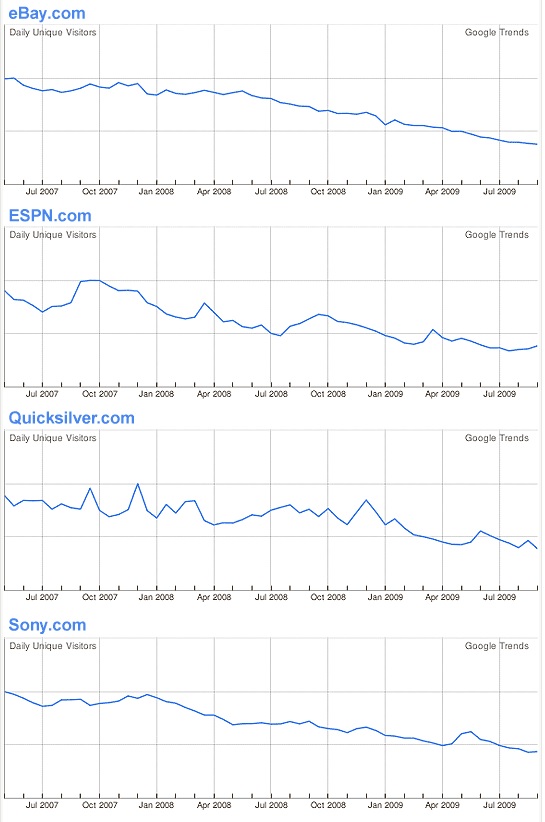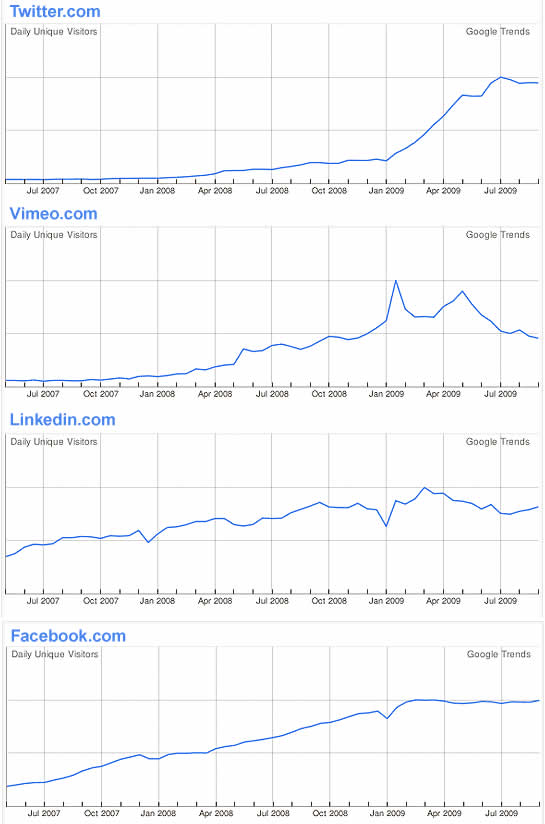 We all (hopefully) realise that the digital age is upon us and it’s not going anywhere. Why then, is it that for many companies website traffic is decreasing? If everyone is connected, if everyone is online, shouldn’t website traffic be sky rocketing?
We all (hopefully) realise that the digital age is upon us and it’s not going anywhere. Why then, is it that for many companies website traffic is decreasing? If everyone is connected, if everyone is online, shouldn’t website traffic be sky rocketing?
A company website used to be the centre point of the online universe. In recent years this changed and social media (of which blogs are the most integral part) took the number one spot. This is where Internet browsers spend most of their time and where the word spreads about products and services.
As all first world trends appear later in South Africa than they do throughout the rest of the world, many South African companies place most of their hope on their corporate websites. Their social media presence is simply a token one but no real value is gained from it.
The Facts
Michael Marlatt, recruiting consultant at Microsoft, says about social media visitors “the point is, they're already there, don't try to re-create the wheel when the wheel is already created for you.”
Webtrends.com conducted a study in 2011 analysing the website traffic of Fortune 100 websites based on ‘unique visits’. The study revealed that 68% of these companies were experiencing a negative growth in visitors over a year’s time – with an average drop of 23%.
Comparing these figures to unique visits to a brand’s Facebook page proved the suspicion. In a sample of 44 companies, 40% exhibited higher traffic to their Facebook page compared to their website.
The below statistics prove that big brands are seeing a drop in website traffic, while, at the same time, social media statistics are climbing higher and higher.


Source: DigitalBuzz
The Reasons
Social media platforms are popular because they’re relevant. Everything is easily sharable and most of the time visitors are already interested because they only follow or like certain individuals, companies and groups.
Another fact, one that many still have to get used to, is that brands are promoting all their content on social media platforms. The content that would normally be found on corporate websites is now found on various other sites – so there’s no point in really browsing a website unless you’re 100% sure of what you’re looking for.
Social media sites allows users to find, access, comment, bookmark and share different types of content easily and from one user friendly platform.
The Good News
The role of the corporate website has changed completely because social media and blogs have become so important. This is not a bad thing. Social media and blogs can be used to drive traffic to landing pages – which is ultimately where you want visitors to end up.
There has been a major shift from uploading news to a site to actually publishing value adding content, which today should appear on a blog. Websites should be very company specific and regular traffic to a corporate site isn’t normal anymore. A loyal readership on social media is much more important as, in the end, this is where your web traffic originates from.
If your web traffic is dropping it doesn’t necessarily mean that you’re failing, it means that you need to up your social media strategy (which includes blogging).
The worst thing that you can do is to ignore social media and blogs, or to not fully commit to it and simply “employ” it because everyone else is doing it.
Making a success out of your social media strategy takes time and it takes resources, but, at the end of the day, you’re either in or you’re out. Companies need to adapt - not restructure. A website is still a necessary aspect of digital marketing and a big part of a company’s core branding strategy - but so is social media. In a sense, one keeps the other alive.
A corporate website alone is not enough to gain traffic and as such, business.
Sound Idea Digital is a full service digital marketing agency that specialises in content marketing.
info@soundidea.co.za | www.soundidea.co.za | SoundIdeaDMA
|
Request a Digital Marketing Services Consultation
|
[Back]
blog comments powered by Disqus

